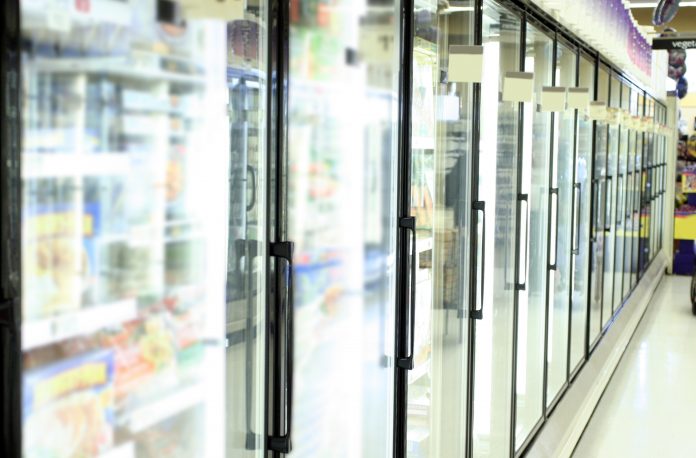Francesco Mastrapasqua, Institutional Affairs Manager at EPTA SPA, underlines what we need to know about sustainability in the food retail sector
The fight against climate change and the choice of the most sustainable future cooling technologies are in the present age at the centre of the current international debate in Europe and worldwide, since developing countries will soon gain access to an adequate cold chain and air conditioning.
The HFC (hydrofluorocarbons) refrigerants in commercial refrigerators, air conditioners and heat pumps contribute considerably to the current climate crisis and today amount to 2.5% of the EU’s total GHG (Greenhouse Gas) emissions. Eliminating the use of HFCs alone would mean a 0.5°C temperature reduction during the next decades: a very important contribution to global mitigation efforts.
The history of refrigerants tells us that every generation of synthetic refrigerants has subsequently been phased down due to their various hazardous effects on the environment. In this context, only natural refrigerants allow us to leave behind this situation of uncertainty and chemical risks for the environment – a true guarantee for the future.
CO2 refrigeration systems, in particular, have been developed to a high level of industrialisation and ensure a better TCO (Total Cost of Ownership) than the HFC technologies, while universally guaranteeing a very high level of efficiency, even in the world’s warmest climatic regions. R744/CO2 is a natural, non-toxic and non-flammable refrigerant, with a GWP (Global Warming Potential) of 1, with excellent thermodynamic and heat transfer capabilities and today is Europe’s most used refrigerant in new medium-large stores.
CO2 systems
During the last few years, the major European companies have concentrated efforts and investments on the innovation of CO2 systems matching performance, reliability, safety and efficiency with absolute respect for the environment.
One of the latest developments is a new generation of CO2 refrigeration systems by EPTA, multinational group specialised in commercial refrigeration for Retail, Food & Beverage and Ho.Re.Ca., that allows optimised performance and significant energy savings versus HFCs in any climatic condition, anywhere in the world, all year-round. Besides, the technical solution is now finally unique – independent of the climate – industrially scaled up and extremely simple to allow easy use and maintenance and therefore, unlimited diffusion.
Mechanically, the system (FTE2.0, Full Transcritical Efficiency) works with the same type of components as a standard CO2 system. The efficiency derives from better use of the “flooded” medium temperature evaporators that increase the evaporation temperature and ensure a considerable reduction in the energy consumption of the cooling rack.
ETE (Extreme Temperature Efficiency) is a CO2 subcooling system operating on the high-pressure side, designed to complement FTE2.0 at high or extreme temperature conditions, guaranteeing optimal performance and energy consumption even in hot and tropical climates (well above 40°C).
The observation of seven pilot stores in the hot Mediterranean area over more than a full year has shown an annual energy saving of up to 23% and the LCA analysis (according to the LCCP standard), a reduction in CO2 emissions globally by up to 20% compared to a standard CO2 transcritical system.
Hundreds of stores all over the world, even in hot countries such as South America, Australia, UAE and South-East Asia are adopting these near-to-zero environmental impact systems.
F-gas Regulation
The F-gas Regulation is the main instrument for reducing the emissions from fluorinated greenhouse gases in the EU and without its stimulus, the European market alone would not have evolved at this pace.
As part of the European Green Deal, the EU has raised its climate ambition and committed to net greenhouse gas emission reductions of at least 55% by 2030 and climate neutrality by 2050. Following this, the European Commission is currently reviewing all climate-relevant rules, including those on F-gases.
The majority of companies in this sector are truly convinced that the new F-Gas Regulation to be published in 2023 is a unique opportunity to accelerate the phase-out of HFCs and pave the way for more widespread use of natural refrigerants. Certainly, it will shape the future of the whole cooling and heating sectors.
The European Commission this time is called to align the industry on a sustainable and definitive long-term solution, ultimately, not a further intermediate step that will change again after a few years.
At every GWP restriction, in fact, new synthetic refrigerants (chemical patented products available in limited quantities at very high prices) were introduced, causing excessive costs to the industry and the market and feeding the prosperous business of illegal trade of HFCs (31 MtCO2e in 2019), driven by high profits and low risk.
Adoption of HFC-free technologies
Therefore, given the very high climate ambitions of Europe, we would encourage the Commission to strengthen the ambition and promote the exclusive adoption of HFC-free technologies, introducing an ultra-low GWP<5 for new commercial refrigeration equipment of any cooling capacity/ size.
The greenhouse gas emissions from HFCs are particularly difficult to compress because of the consumption of high-GWP HFCs for the maintenance of existing supermarkets and hypermarkets that are continuously dispersing tonnes of their refrigerant charge (up to 15% every year) into the environment due to their leakages in operation.
For this reason, immediate attention should be given to measures that, in a reasonable time, restrict the use of HFCs for the maintenance of existing systems whose contribution to climate warming weighs much more than the new products placed on the market. Replacing an HFC refrigerator with a CO2 equivalent means reducing its direct greenhouse effect by up to 4,000 times!
The transition to sustainable technologies like CO2 refrigeration systems in Europe will stimulate economic growth, generate new jobs, support European companies and strengthen our industrial competitiveness in the world.
The supermarket of the future is completely green, the refrigerant natural and not climate-altering, the energy consumption minimal and exclusively from renewable sources, the equipment capable of teamwork and to communicate with the energy provider, keeping food always at a perfect and stable temperature.
Sustainability in the food retail sector is within our reach at this precise moment in time and in “Clean Cooling” the European companies are undisputed worldwide leaders.
The LIFE-C4R has received funding from the European Union’s Life Programme under the Grant Agreement no. LIFE17 CCM/IT/000120.
Life-C4R (2018-2021) is the EPTA project created to accelerate the deployment of a new generation of high-efficiency CO2 refrigeration systems based on the FTE2.0 and the ETE technologies in any country, with any external temperature.
Please note: This is a commercial profile
© 2019. This work is licensed under CC-BY-NC-ND.











